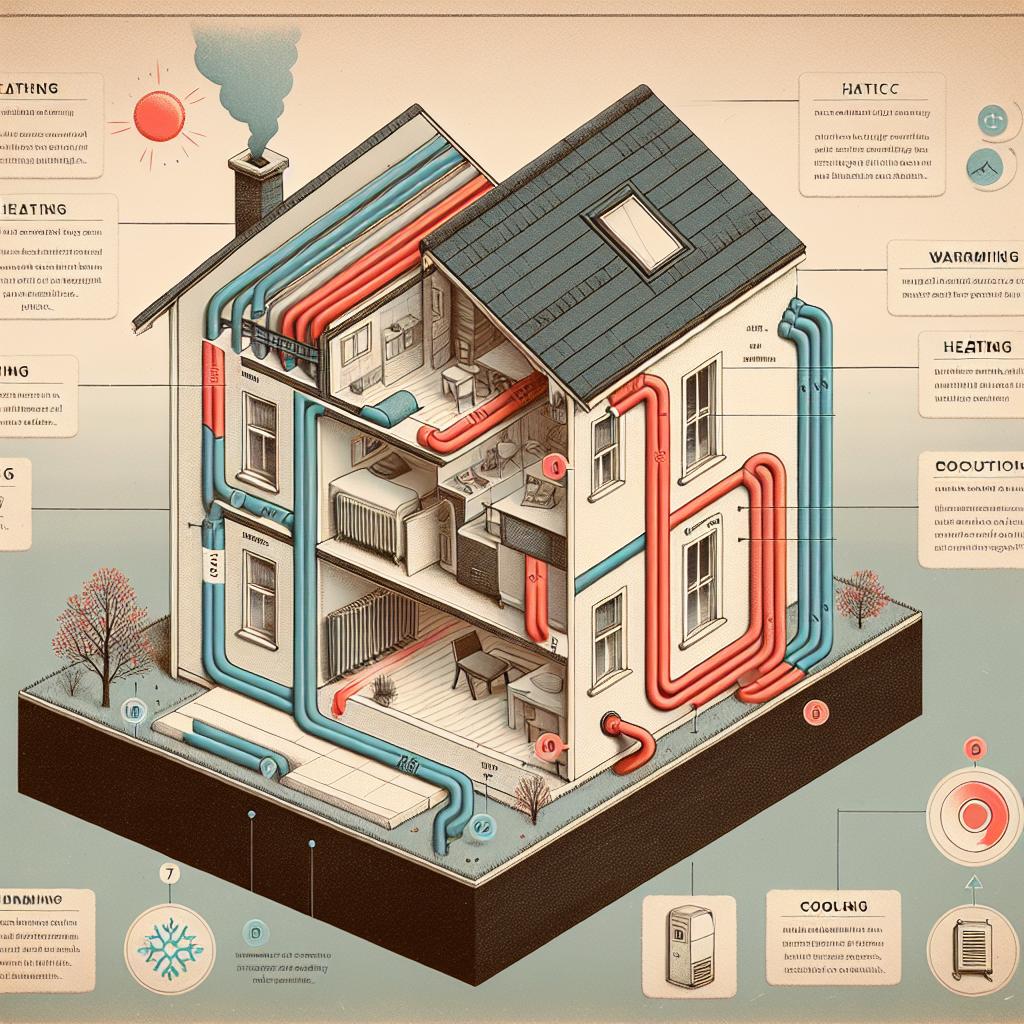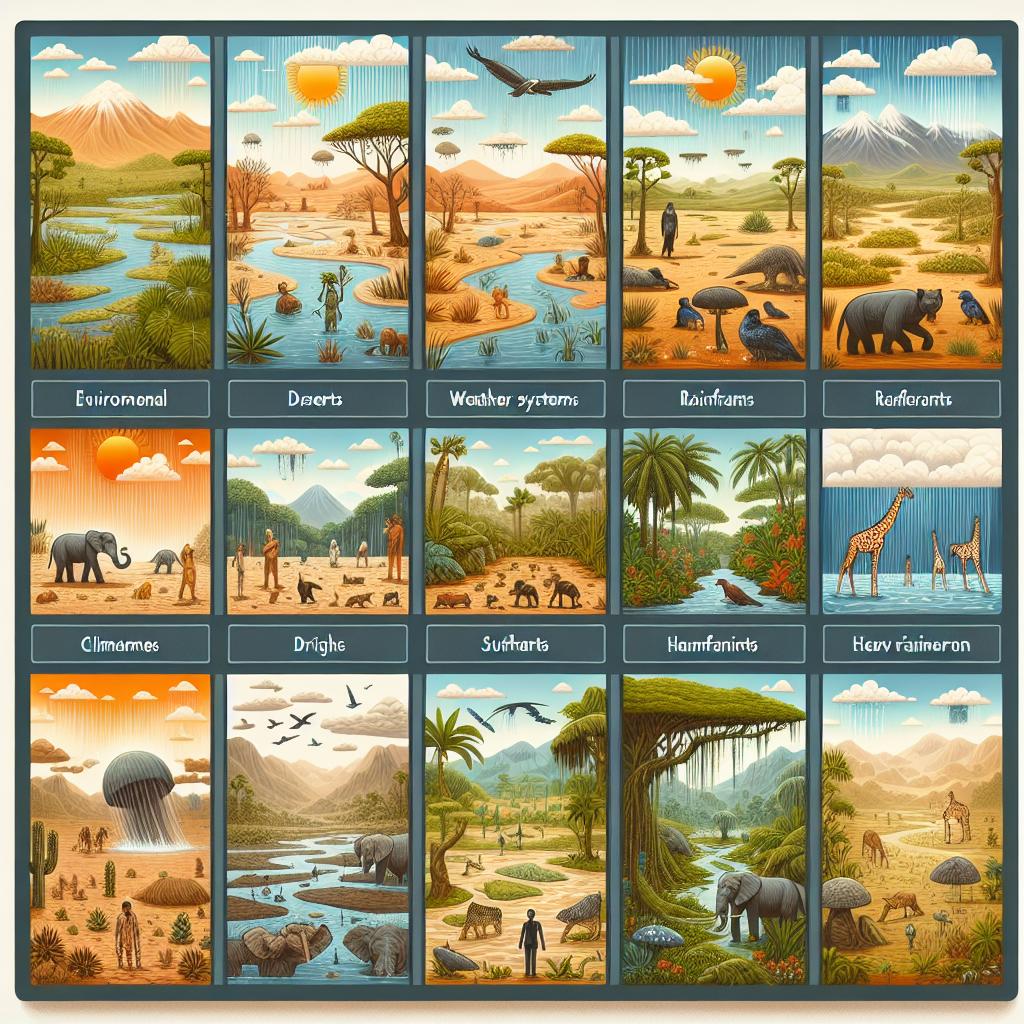When the seasons change, comfort becomes a priority, and an efficient HVAC system is the backbone of a cozy home. As you step into the world of heating, ventilation, and air conditioning, the myriad choices can feel overwhelming. Determining the right system for your needs requires a thoughtful approach. From energy efficiency to sizing, and installation costs to long-term maintenance, several key factors come into play. In this article, we’ll explore the essential considerations to guide you on your journey to selecting a new HVAC system that not only meets your expectations but enhances your living environment for years to come. Whether you’re upgrading or purchasing your first system, understanding these elements will empower you to make an informed decision tailored to your unique needs.
Understanding Your Homes Heating and Cooling Needs
Understanding your home’s heating and cooling needs is crucial when selecting a new HVAC system. Every home is unique, and several factors come into play that can affect the efficiency and effectiveness of the system you choose. Begin by considering the size of your home, as this dictates the capacity of the system required. A unit that is too small will struggle to maintain comfortable temperatures, while one that is too large can lead to rapid cycling, wasting energy and increasing wear and tear.
Moreover, don’t overlook the importance of insulation and ventilation in your home. Proper insulation can significantly reduce the load on your HVAC system, allowing it to operate more efficiently. Evaluating the following can help guide your decision:
- Home layout: Identify the areas that need more heating or cooling.
- Climate zone: Understand the local weather patterns and seasonal demands.
- Energy efficiency: Look for systems with high SEER (Seasonal Energy Efficiency Ratio) ratings, which can lead to long-term savings on energy bills.
Here is a simple comparison of options based on your needs:
| System Type | Energy Efficiency | Initial Cost |
|---|---|---|
| Central Air Conditioner | Medium to High | $3,000 – $7,000 |
| Heat Pump | High | $4,000 - $8,000 |
| Window Units | Low | $150 – $800 |
| Ductless Mini-Split | High | $2,000 – $5,000 |
By carefully assessing these aspects, you can select an HVAC system that aligns perfectly with your home’s needs and ensures optimal comfort year-round.

Evaluating Energy Efficiency Ratings and Long-Term Savings
When selecting a new HVAC system, one of the most crucial factors to consider is the energy efficiency rating. These ratings, typically represented by SEER (Seasonal Energy Efficiency Ratio) for cooling systems and AFUE (Annual Fuel Utilization Efficiency) for heating systems, provide insights into how effectively the unit converts energy into heating or cooling. Generally, higher ratings indicate greater efficiency, which translates to lower energy bills. It’s important to compare models and prioritize systems that exceed the minimum efficiency standards set by local regulations. This not only benefits your pocketbook but also contributes to a smaller carbon footprint.
Additionally, it’s wise to calculate potential long-term savings associated with different HVAC systems. Start by considering the average energy costs in your area and how often you plan to use the system. A more efficient model may have a higher upfront cost, but it can lead to significant savings over time. To help visualize these savings, here’s a simple comparison:
| System Type | Initial Cost | Annual Energy Cost | 5-Year Savings |
|---|---|---|---|
| Conventional System | $3,500 | $800 | $0 |
| High-Efficiency System | $4,500 | $600 | $1,000 |
| Smart Thermostat Integration | $5,000 | $500 | $1,500 |
This table illustrates how investing in higher efficiency models can lead to tangible savings over the years. Keep in mind that ongoing maintenance and potential rebates or incentives can further enhance the long-term economic benefits of your new HVAC system, making it essential to factor these elements into your decision-making process.

Exploring System Types and Their Suitability for Your Climate
When selecting a new HVAC system, consider the specific climate you reside in and how different system types function in those conditions. For instance, a central air conditioning system is ideal for regions that experience hot summers and chilly winters, providing efficient cooling and heating through ductwork. Conversely, in areas with more moderate temperatures, a mini-split system may be more suitable, offering flexibility and zoning capabilities without the need for extensive duct installation. Recognizing how each system adapts to seasonal changes will help determine the most effective solution for your home.
In addition to system type, it’s essential to evaluate the overall energy efficiency of the units available. Energy Efficiency Ratio (EER) and Seasonal Energy Efficiency Ratio (SEER) ratings can guide your decision. Here’s a quick comparison of common HVAC systems and their energy efficiency:
| System Type | EER Rating | SEER Rating |
|---|---|---|
| Central Air Conditioning | 10-12 | 14-20 |
| Mini-Split Heat Pump | 12-15 | 15-30 |
| Window Unit | 8-11 | Not Applicable |
| Geothermal Heat Pump | 15-20 | 20-30 |
Moreover, other climatic factors like humidity levels, elevation, and geographical location should also influence your selection. For instance, in humid regions, a system with a high dehumidification capacity is vital to prevent mold and maintain comfort. In contrast, areas that experience significant temperature fluctuations may benefit from systems with advanced insulation and energy recovery features. By thoughtfully assessing your local climate in conjunction with system compatibility, you can secure an HVAC solution tailored to both your home’s needs and your comfort preferences.

Budgeting for Installation, Maintenance, and Potential Upgrades
When investing in a new HVAC system, it’s crucial to factor in the costs associated with installation, maintenance, and potential upgrades. Installation expenses can vary significantly depending on the complexity of the setup and the type of system you choose. Basic components of installation costs include:
- Labor Costs: Professional installation is essential to ensure efficiency and safety, affecting the overall budget.
- Equipment Type: High-efficiency units may cost more upfront but can lead to lower energy bills over time.
- Ductwork: If your existing ducts need repairs or replacements, this will add to your installation costs.
Regular maintenance is equally important to prolong the life of your HVAC system and enhance its performance. Investing in a maintenance plan can prevent costly repairs down the line. Consider budgeting for:
- Annual Check-ups: Hiring professionals for routine inspections can mitigate the risk of unexpected breakdowns.
- Cleaning Services: Regular cleaning of filters and ducts improves airflow and efficiency.
- Upgrades: As technology advances, consider setting aside funds for future enhancements that could improve efficiency or smart home compatibility.
| Cost Component | Estimated Cost Range |
|---|---|
| Installation | $1,500 - $4,500 |
| Annual Maintenance | $100 – $300 |
| Upgrades (e.g., smart thermostat) | $200 – $1,000 |
Q&A
Q&A: What to Consider When Buying a New HVAC System
Q1: Why is it important to choose the right HVAC system for my home?
A: The right HVAC system ensures comfort, energy efficiency, and proper air quality. An ill-fitting system can lead to higher energy bills, inadequate heating or cooling, and increased repair costs over time.
Q2: What are the key factors to consider when selecting an HVAC system?
A: Consider the size of your home, your climate, energy efficiency ratings (like SEER for air conditioning), maintenance requirements, and your budget. Will the system meet your cooling and heating demands throughout the seasons?
Q3: How can I determine the right size HVAC system for my space?
A: It’s essential to calculate the heating and cooling load of your home. This involves factors like square footage, window placement, insulation quality, and local climate. Consulting with a professional HVAC technician can help ensure you get a properly sized unit.
Q4: Should I prioritize energy efficiency when buying a new HVAC system?
A: Absolutely! An energy-efficient system may have a higher upfront cost but can significantly reduce your monthly utility bills and environmental impact. Look for systems with a higher SEER rating for air conditioning or AFUE for furnaces.
Q5: What type of HVAC system should I consider?
A: The type depends on your home and preferences. Options include central air systems, ductless mini-splits, heat pumps, and traditional furnaces. Each has its pros and cons based on efficiency, cost, and installation requirements.
Q6: Is it worth considering smart HVAC technologies?
A: Yes! Smart thermostats and systems can provide enhanced control over your home’s temperature, allowing for personalized comfort and energy savings. They often come with features like remote access, learning capabilities, and energy usage reports.
Q7: How do installation costs factor into my decision?
A: Installation costs can vary widely based on system type and complexity of the installation. It’s wise to get multiple quotes from licensed professionals and factor this into your overall budget. Remember, a more complex installation might be necessary for efficiency and comfort.
Q8: Are there financing options available for HVAC systems?
A: Many HVAC companies offer financing plans, and there may also be rebates and tax incentives available for energy-efficient systems. Be sure to explore these options to make your investment more manageable.
Q9: How important is the warranty when choosing an HVAC system?
A: A solid warranty can provide peace of mind. Look for a system with a robust warranty that covers both parts and labor. This helps protect your investment in case of unexpected repairs in the future.
Q10: When is the best time to buy a new HVAC system?
A: Generally, off-peak seasons like late fall or early spring can yield better pricing and availability. However, if your system fails in the middle of summer or winter, it’s important to prioritize your comfort over the season.
Final Thoughts
Investing in a new HVAC system is a significant decision that impacts your home’s comfort and your utility bills. By considering these key questions, you can make an informed choice that meets your needs for years to come.
Concluding Remarks
As you embark on the journey of selecting a new HVAC system, remember that the choices you make today will shape the comfort and efficiency of your home for years to come. By considering factors such as energy efficiency, system size, and cost-effectiveness, you’re not just investing in a piece of equipment, but in the overall quality of your living environment. Take the time to research, seek professional advice, and prioritize your specific needs. After all, a well-chosen HVAC system is more than just a machine; it is your silent partner in creating a cozy sanctuary, enhancing your indoor air quality, and reducing your environmental footprint. With the right knowledge and careful consideration, you can ensure that your next HVAC purchase is a decision you’ll cherish for all the seasons to come. Happy hunting!

